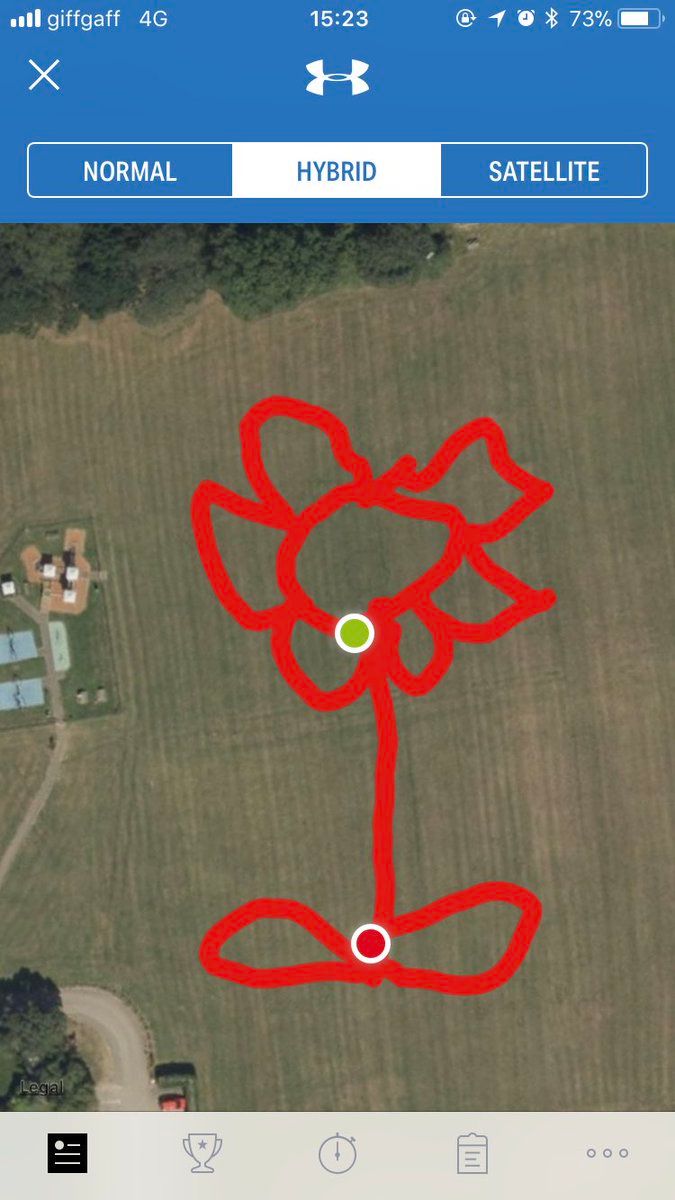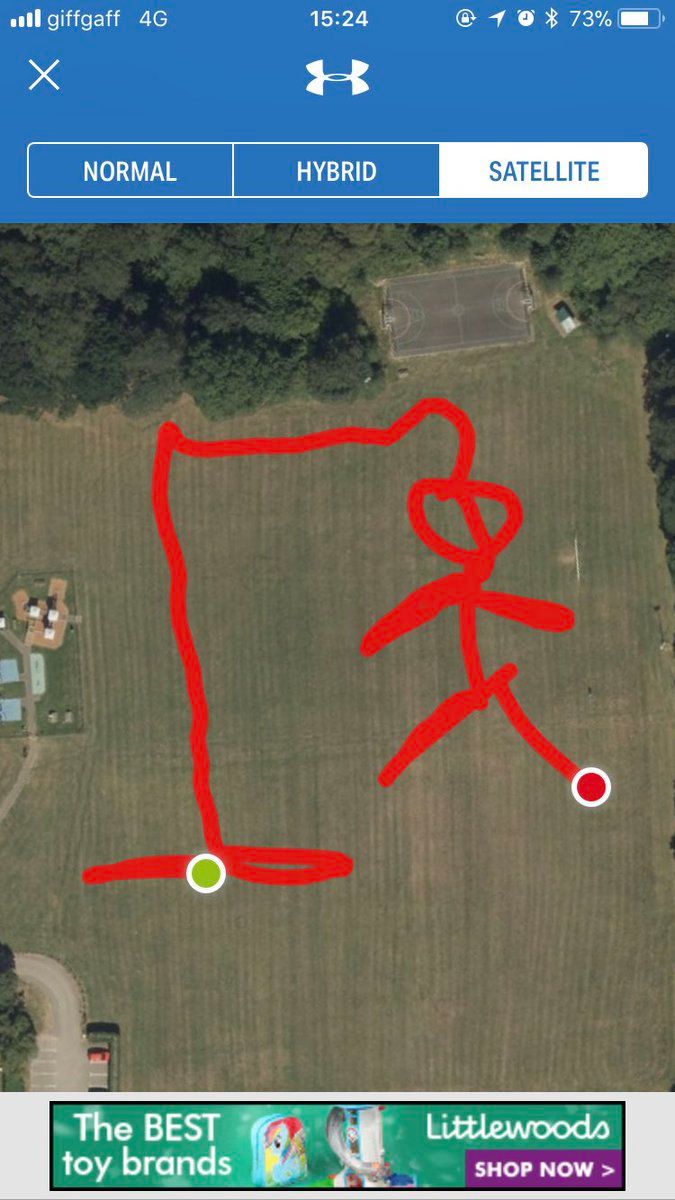Ninety-nine percent of the time, I think of Strava as a running app. But every now and then, I do something a bit different with it.
Here are a few examples!
Record your way through a maze
When we explored the maze at Wildwood, Strava was a fun way to see just how lost we got.

Being able to see how many times we went round the same sections of the maze on an interactive map adds a great layer to the experience.

This is a great use of Strava… you just need to find a large outdoor maze.
link – Strava activity
Run on a moving surface
We were on a ship with a running track last week, so I thought this was another chance to do something weird with Strava.
My plan was to run laps of the ship deck while it was at sea, and use that to draw a cool spiral GPS trace with each lap’s GPS location slightly offset from the last.
I massively overestimated how fast I run compared with the speed of a ship.
My GPS trace was essentially a straight line. The waves in the line reflect the slight difference between when I was running in the same direction as the ship to when I was running the opposite, for each short lap.


The resulting stats are entertainingly ridiculous. I love that Strava was suspicious of my ability to run sub-3 minute miles.


Draw pictures
This is the most common “something weird with Strava” idea I’ve seen people try: find a field and use GPS as a massive virtual Etch A Sketch.


Our local park is ideal for this.
link – not actually Strava, but similar enough!
geo-tagged photos
We stumbled upon a ceramic tile mosaic styled to look like 8-bit video game pixel art. It was just on a random wall, with nothing announcing, explaining, or sign-posting it.
After accidentally finding a second different mosaic nearby, I decided to spend an evening finding more!

I took pictures of each mosaic.
With Strava, a random collection of photos becomes an annotated interactive map, showing where each photo was taken and where each mosaic is.

(I’ve since learned that these are the work of a street artist called Invader – thanks, Paul!).
link – Strava activity
What else?
If I played sports, I’d try recording that – I think a trace of where you’ve run during football sounds like a fun idea.
What other uses are there for a GPS trace?

 Exploring Language Models in Scratch with Machine Learning for Kids
Exploring Language Models in Scratch with Machine Learning for Kids  Introducing LLM benchmarks using Scratch
Introducing LLM benchmarks using Scratch  Introducing Generative AI into Code Clubs
Introducing Generative AI into Code Clubs  “Shoebox”: an artificial intelligence history project
“Shoebox”: an artificial intelligence history project  Visualising Apache Kafka events in Grafana
Visualising Apache Kafka events in Grafana  Using MirrorMaker 2 for simple stream processing
Using MirrorMaker 2 for simple stream processing  Using time series models with IBM Event Automation
Using time series models with IBM Event Automation  Using annotations to store info about Kafka topics in Strimzi
Using annotations to store info about Kafka topics in Strimzi  Understanding event processing behaviour with OpenTelemetry
Understanding event processing behaviour with OpenTelemetry  What are we missing in AsyncAPI?
What are we missing in AsyncAPI?  Turning noise into actionable alerts using Flink
Turning noise into actionable alerts using Flink  How to use kafka-console-consumer.sh to view the contents of Apache Avro-encoded events
How to use kafka-console-consumer.sh to view the contents of Apache Avro-encoded events  Event-driven sessions at IBM TechXchange 2025
Event-driven sessions at IBM TechXchange 2025  From Event Streams to Smart Streams : Powering AI / ML with your Kafka topics
From Event Streams to Smart Streams : Powering AI / ML with your Kafka topics  Using AI to augment event stream processing
Using AI to augment event stream processing  Triggering agentic AI from event streams
Triggering agentic AI from event streams  Using event streams to provide real-time context for agentic AI
Using event streams to provide real-time context for agentic AI  Using streams of events to train machine learning models
Using streams of events to train machine learning models  AI patterns in event driven architectures
AI patterns in event driven architectures  npx dalelane
npx dalelane  Maverick Dark Castle
Maverick Dark Castle  A break in Devon
A break in Devon  Fun things to do with Strava
Fun things to do with Strava 









